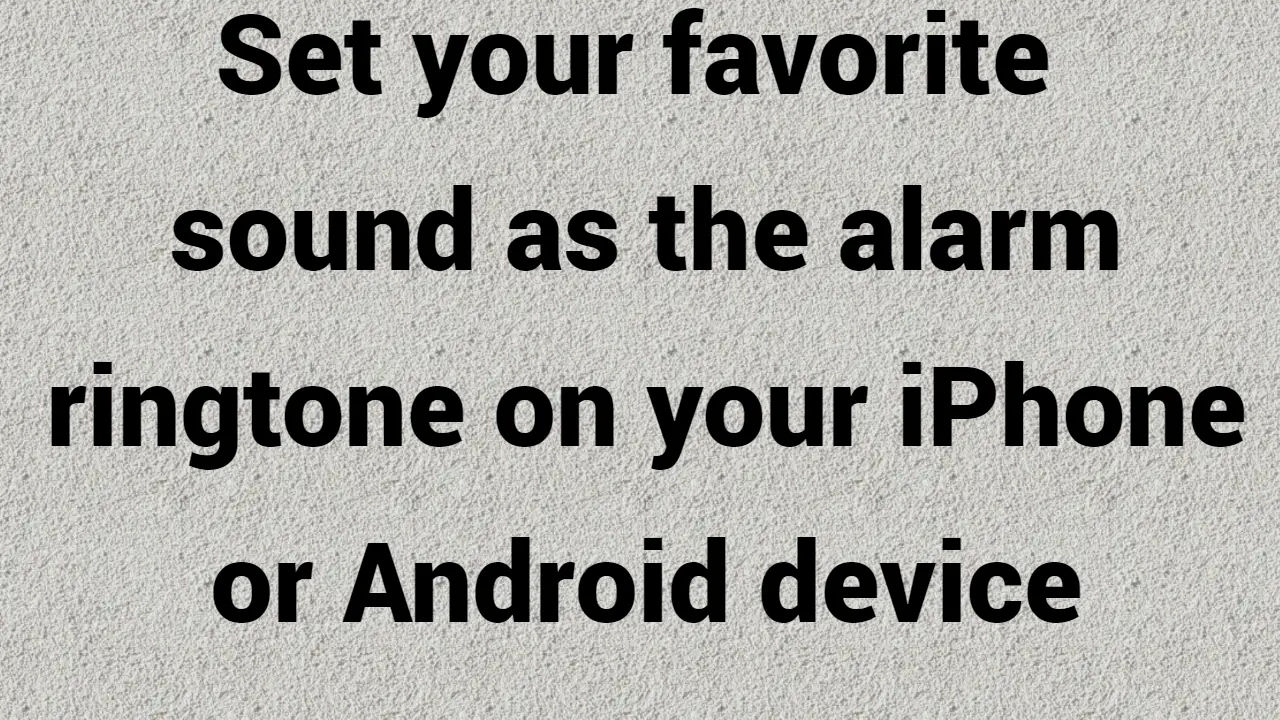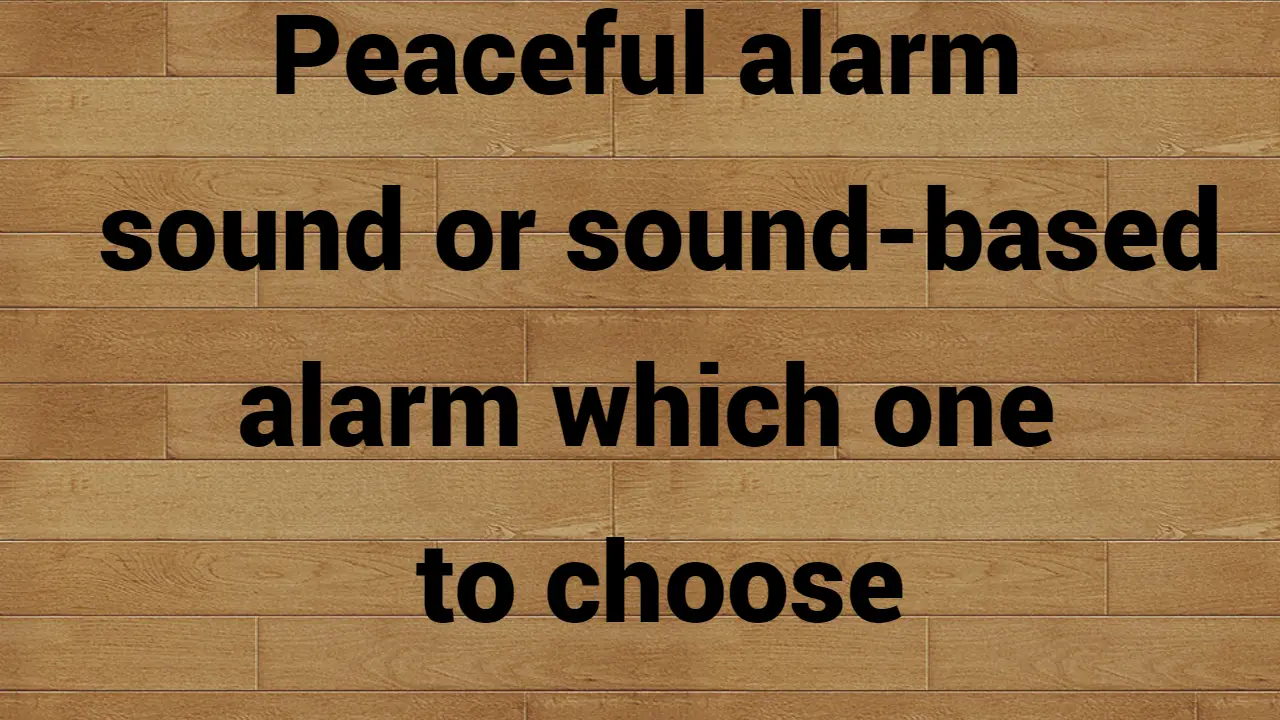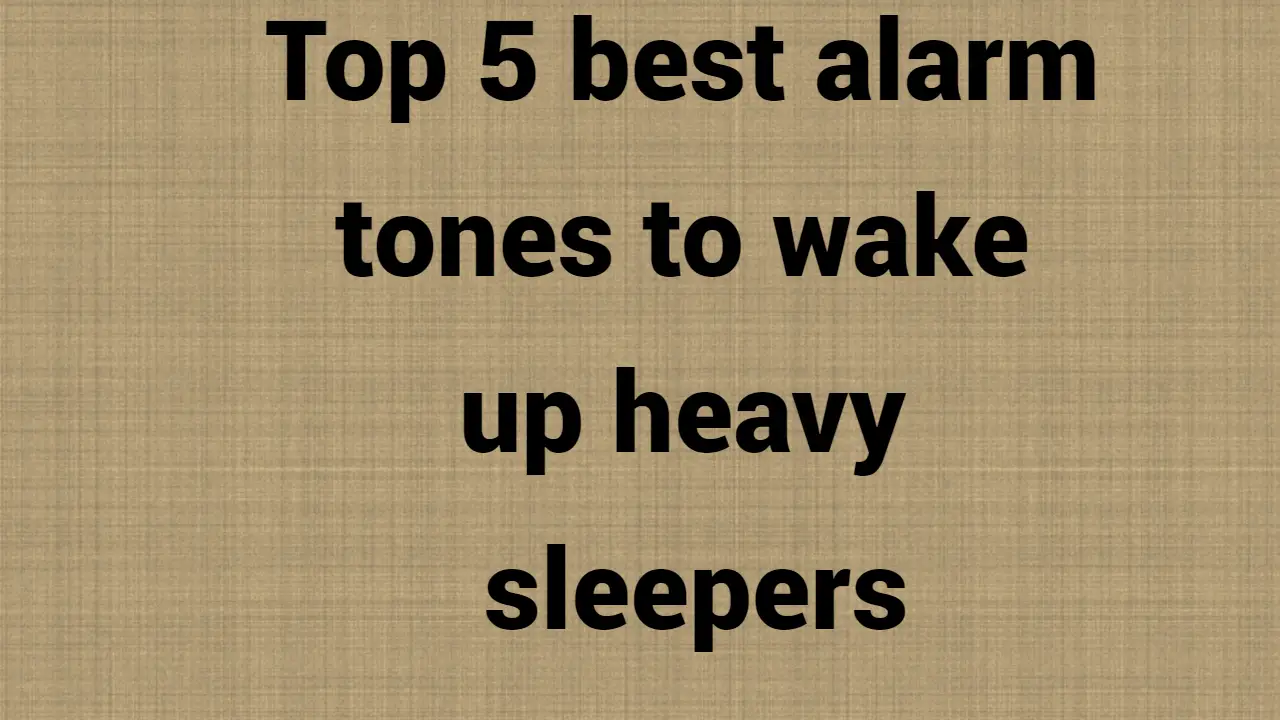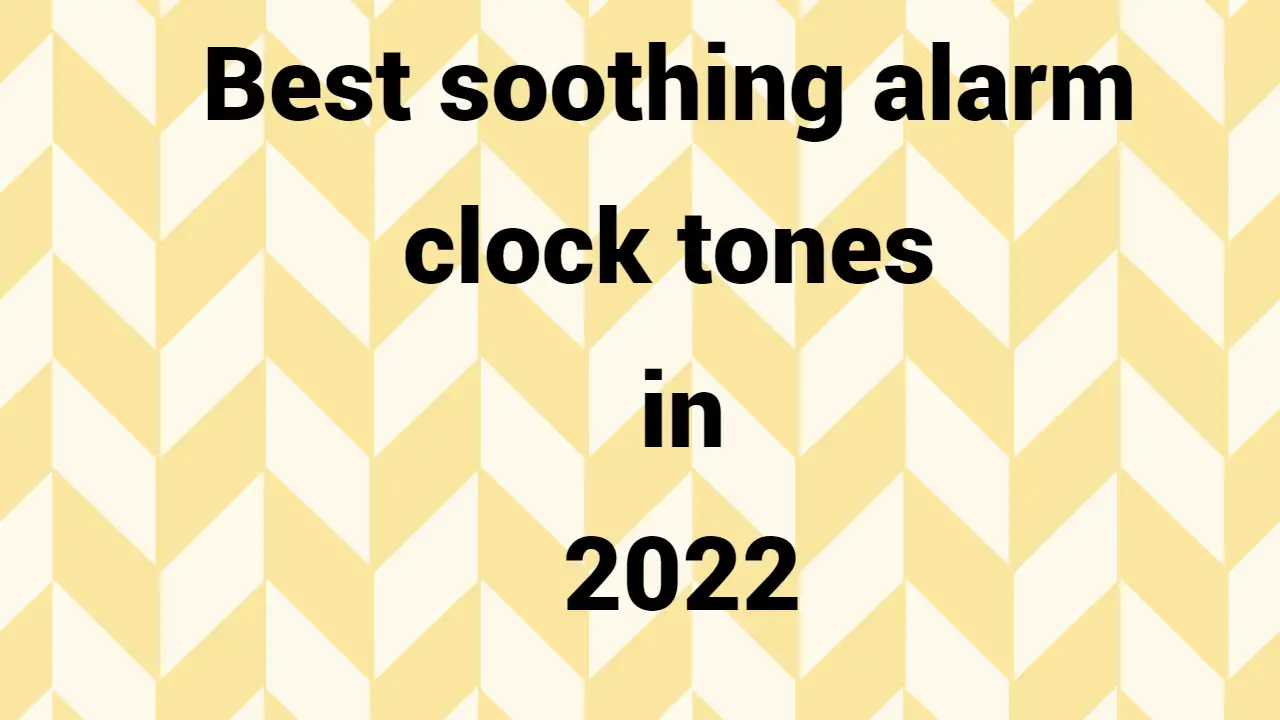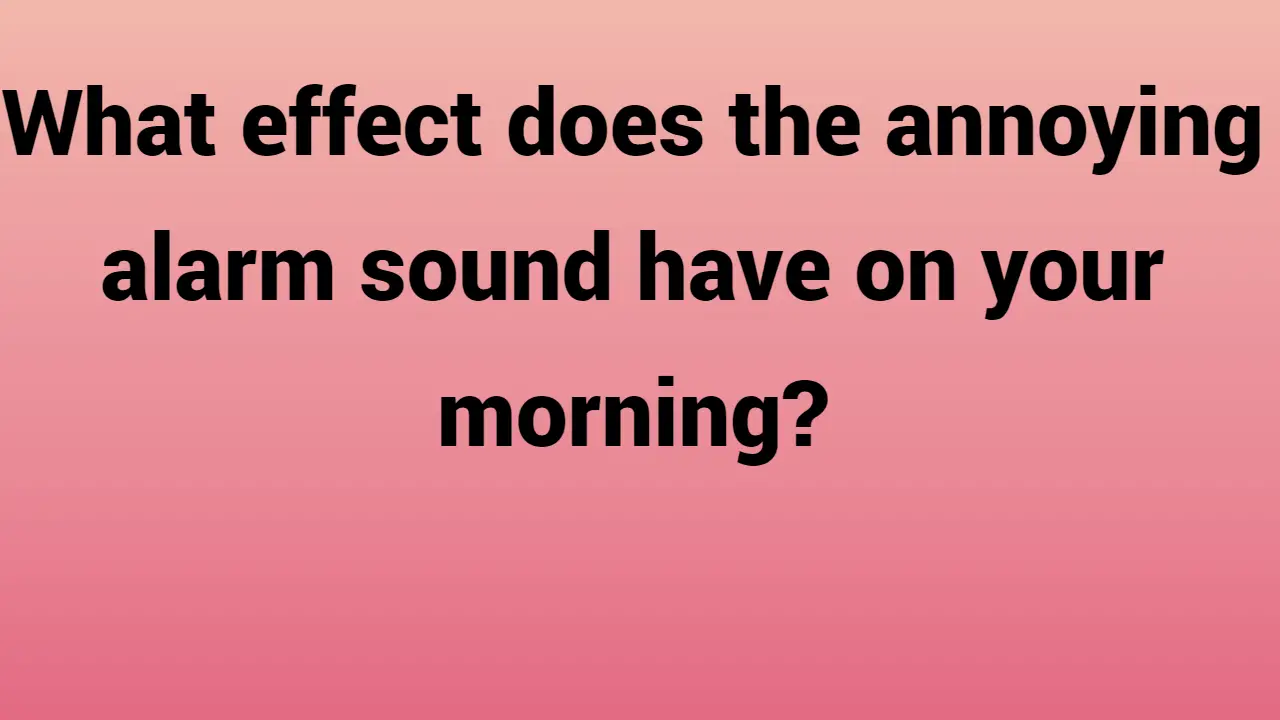We are still adamant that the alarm sound from the alarm clock we used in high school and college is the worst sound ever produced. Even now, decades later, the mere thought of hearing it makes us cringe. My guess is that a lot of other people feel the same way about hearing their alarm clocks, regardless of whether they buzz, beep, ring, or do something else entirely.
Fortunately, we now have more sophisticated technology that can help us get rid of these upsetting noises from our lives. Here are six more reasons to forego using an alarm clock (or a cell phone) in favor of a silent alarm.
Perks of Arriving at a Soft or No-Sound Alarm
1. No other people are awakened. There may not be a need to get up at the same time if you and your partner have different schedules. We are appreciative of the additional time in bed, even if it is only a few minutes. You can quietly wake up without waking others up with a haptic feedback alarm on your wrist.
2. Earplugs can help you sleep better. Eliminating all noise in your bedroom is one of the best things you can do to get a good night’s sleep. In many cases, the simplest solution is to insert ear plugs, but we may hesitate to do so out of concern that we won’t hear the alarm in the morning. The issue is resolved.
3. It lessens the inertia of sleep. Sleep inertia refers to that groggy, sluggish, and foggy sensation we frequently have when we wake up. An alarm clock’s “harsh tones” can exacerbate this feeling, according to a recent Australian study.
According to lead researcher Stuart McFarlane, “Sleep inertia typically lasts for up to 30 minutes after waking and has been shown to extend for two to four hours.” “Your work performance can be degraded for periods as long as 4 hours if you don’t wake properly,” he continued.
4. Keep away from the “shock” of awakening. Your brain and body are shocked when you are abruptly awakened from sleep by a loud noise. In a small number of instances, this has resulted in irregular heartbeats, seizures, and even fatalities.
5. Less anxiety. This “shock” to your system causes a regular increase in heart rate and blood pressure, according to a study from Japan’s National Institute of Industrial Health. Additionally, it results in the release of adrenaline, which sets off your sympathetic nervous system’s “fight-or-flight” response and elevates your blood pressure.
6. Prevent yourself from ever again hearing that awful noise. Don’t you really only need this? Not only that, but even a carefully chosen cell phone melody can become intolerably loud.
Our morning alarm settings can make or break the day.
When dawn first broke, the majority of people naturally got up. Today, however, it’s typical to use a loud alarm clock to wake us up on time. There are many different alarms available, from basic chimes on our phones to vintage clock radios to modern alarms that beam light to simulate the sun shining on our sleepy faces. According to a recent study, our mood and productivity throughout the day may be impacted by the simple decision of which morning alarm to use.
Sleep Inertia: A Common Health Problem
That sleepy, confused feeling that is frequently experienced right after waking up is something that many of us are familiar with. This can make it difficult for you to think clearly, form complete sentences, or even get through your morning routine. This phenomenon, called sleep inertia, only occurs for the majority of people for a brief period of time after they wake up in the morning.
Within 15 to 30 minutes, sleep inertia typically starts to disappear. Only two hours should pass before our bodies and brains should be functioning at full capacity with no signs of early morning grogginess. Sleep inertia, however, can make some people’s mornings or even entire days miserable.
- Long-term sleep inertia can have a variety of negative effects on a person’s life, including making it difficult to get to work or school on time, having a poorer cognitive function, and even having more accidents.
- Brain waves seen during sleep continue to exist long after we wake up, which appears to be the root of sleep inertia. But why some people are more likely to experience this condition hours after waking up is a mystery to us.
- Fortunately, minor changes in lifestyle seem to have a significant impact. An alarm clock’s design may be one of the factors that determine whether you experience this disorder on any given morning, according to a recent study.
The Life-Changing Power of Your Morning Alarm
Researchers interviewed a group of participants about their sleep and waking habits as well as how they felt throughout the day in order to learn more about the causes of sleep inertia.
When they combined all of the information, they found one intriguing correlation: people who woke up to melodic or musical alarms, such as radios or chimes, felt more alert in the morning and experienced lower subjective rates of sleep inertia. The frequency of sleep inertia symptoms was higher in those who awoke to more abrupt noises, such as beeping.
Even more unexpectedly, it was found that one’s choice of alarm clock could have an impact on how the morning went, either in a good or bad way. Many people felt groggy for most of the morning when their alarms were loud and jarring as opposed to melodic.
Enhancing Your Morning Alarm with Light
When it comes to alarm clocks for the morning, there are many options available, each with a unique experience and advantages. Contrary to what many people believe, this new study contends that pleasant sounds serve as the best alarms. For those who must quickly awaken and get moving, waking to a pleasant and melodic noise may actually be the best option.
In addition to picking the right kind of noise, having a light-up alarm clock also seems to have an impact on how you feel in the morning, in addition to picking the right kind of noise. It is easier to wake up and feel refreshed throughout the day if you are exposed to light that is similar in quality and strength to natural outdoor light as you are falling asleep. People who require this extra boost in the morning have a wide range of options for light alarm clocks.
These tools can also be used as therapy lamps if you are dealing with other medical issues. Light therapy can help a lot of people who have health issues like seasonal affective disorder (SAD), jet lag, circadian rhythm problems, and other conditions. Receiving light therapy as you awaken could help with your health issue and prepare you for a more productive and alert morning.
Getting Up Normally
To awaken when an artificial device makes a racket is not a function that humans have evolved to perform. The fact that most morning sounds in nature is gentle and pleasant may be the reason why study participants reported feeling more refreshed after waking to music or other melodic sounds. By including some light, we might also become more alert and prepared to face the day.
The traditional alarm clocks that beep work just fine for many people. However, if you discover that you struggle with drowsiness and other morning symptoms, adjusting your alarm clock and bringing in some natural light might be the solution. We can sleep better and wake up more refreshed thanks to recent advances in chronobiology.
How to get up in the morning
If you must rise before sunrise, there are a few simple ways to add natural light to your wake-up routine to help you get moving. Simply turn on the light, am I right? So, the light must be of a specific type.
Although most indoor lighting is significantly dimmer than natural lighting, including natural daylight in your routine can be a crucial wake-up signal for your brain.
It makes our bodies confused. Many different devices use this technology, which uses daylight bulbs to fool your brain into thinking it is natural light.

